From the Incan Empire to UCLA: Preserving Quechua
- Professor Luz Maria de La Torre, lecturer at the Department of Spanish and Portuguese and the Latin American Institute. Photo by Monica Ponce de Leon.
Quechua, or Kichwa, a language that seemed to be on the path to oblivion, is now emerging among UCLA students. Professora Luz Maria De La Torre and her students are on the road to preserving and bringing cultural awareness of this language to the UCLA campus. All it takes is a allpa muyu, or a little grain of sand, from each individual to form a collective effort to conserve Quechua.
Quechua was the language of the Incan empire and is spoken in countries such as Peru, Bolivia, Chile, Argentina and Ecuador. There are about 8.5-11 million people speaking the language or related dialects, which makes this the most widespread native language in Latin America. Many words in Spanish are derived from Quechua, such as papá (potato) or cuy (guinea pig) and even some words used in the English language like coca, cóndor, and llama.
Professor Luz Maria De La Torre kindly shared her life story about how she found herself teaching the language of her people.
An indigenous Ecuadorian woman born and raised in the small town of Otavalo, she describes her life growing up. “Siendo una mujer indígena es complicado socialmente… no éramos consideradas como seres humanos … [surgimos] de cenizas, de la parte más oscura, [algo que fue] realmente una experiencia maravillosa,” said De La Torre.
Education was the key to battling the discrimination and disempowerment that haunted her society for thousands of years. Profesora De La Torre obtained a Master’s Degree in political science from Facultad Lationoamericana de Ciencias Sociales in Ecuador and studied linguistics and sociology in Paris V.
She claims her parents had much to do with her achievements in higher education. “Aunque mis padres nunca aprendieron a leer y a escribir siempre estuvo en sus sueños que nosotros como una generación nueva aprendiéramos a leer; no solamente que leyéramos las palabras sino que leyéramos la vida,” said de la Torre.
While her studies began in political science, she realized that her allpa muyu to the community came from another field. “Los maestros en la universidad en sus estadísticas siempre nos decían: ‘los indígenas ya han desaparecido y ni existen, había un genocidio,’” she said. “Y cuando comenzamos a explorar esa gran pregunta…Vimos que en realidad habían millones de indígenas pero muchos estaban ocultos.”
Through this discovery, Profesora de La Torre was motivated to teach Quechua, which mirrored her goals. “Es un trabajo de rescate de nuestra lengua y nuestra cultura pero sobretodo es para elevar ese autoestima de esa presencia de los indígenas,” she said.
Profesora De La Torre expressed the unfortunate reality of discrimination against the indigenous in the community. “[Vimos] que nuestros padres [y] nuestros abuelos sufrían discriminación, inclusive ahora de profesional éra tratada como doméstica. Se me acercaban frecuentemente a ofrecerme trabajos de lavadora de ropa o de lavandera cocinera,” she said. She desires to bring awareness about this culture that is usually underestimated and treated unjustly.
In the hopes of establishing a method for teaching Quechua to a wide array of people, the professor and her students work with the Peruvian and Bolivian consulates in Los Angeles to coordinate projects of cultural awareness. De La Torre claims she started teaching without any curriculum. “Por aquí hemos empezado sin materiales, pero en estos tres años de experiencia vamos organizando ciertas situaciones académicas mas ordenadas,” she said.
In addition, the professor is planning to organize her first study abroad program for 2013-2014. “Ecuador y en el futuro podamos a extender a los Andes: Peru, Ecuador, Bolivia sean nuestros sitios,” she said with a smile. She proudly talks about some of her students who have already decided to go abroad. She says, “Está haciendo (la estudiante) su disertación doctoral en una comunidad en Otavalo de donde yo provengo realmente me da tanto orgullo.”
The fact that UCLA offers Quechua is a one of a kind opportunity. It is up to students and individuals who understand the value of this ancient language to take a stand to learn and conserve it.
Just like sand is composed of millions of grains, the study of Quechua needs many students to contribute their grain of sand to form a collection of developing ideas. Profesora De La Torre smiled and said, “Vamos a la carrera así despacio, estamos empezando pero estamos consolidando grandes cosas.”

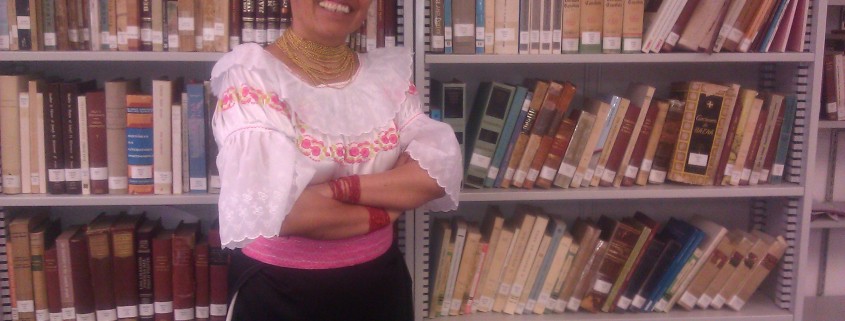
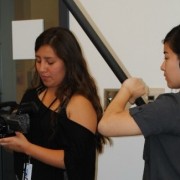


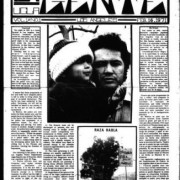
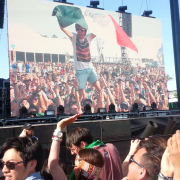
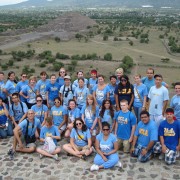
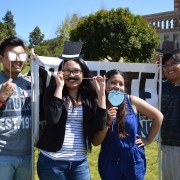


Leave a Reply
Want to join the discussion?Feel free to contribute!